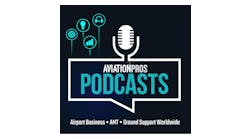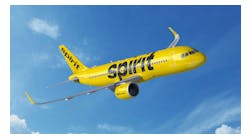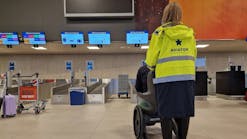Ethics Examination
By Ralph Hood
September 2002
Ralph Hood is a Certified Speaking Professional who has addressed aviation groups throughout North America. A pilot since 1969, he’s insured and sold airplanes at retail and distributor levels and taught aviation management for Southern Illinois University. Reach him at [email protected]
I am concerned. I recently had a conversation with a bright young airline pilot. This fellow worked hard, made all of the right moves and sacrifices, and is now where he always wanted to be — flying a jet for the airlines. It’s fun to see a young person reach goals through good, honest efforts, and more power to him. In our latest conversation, however, he shocked me.
I
asked how his airline was doing, and he implied that they are making a
profit. That didn’t agree with what I had been reading, so I expressed
my surprise. He then explained that, yes, the company was showing a loss,
but that was just because they were "cooking the books." The
implication was that this helped them negotiate with the unions.
I asked if he got that information from
his pilots’ union, and he answered yes.
I asked this young pilot if he honestly
believed that the airline could hide large profits from Wall Street analysts.
He assured me that he did, indeed, believe exactly that.
Let me say right up front that I do not
really believe the union is teaching that; nor do I think the airline
is doing that. Let’s assume, for a moment that the airline wanted
to show a large loss where a large profit actually existed. I don’t
think they could get away with it, and don’t think they are dumb
enough to try it. Nor do I think the union is dumb enough to teach that
if it is not true.
No, I do not have faith that the guvmint
would catch such efforts. I do have faith in the market catching such
shenanigans often enough to make the odds of success too low to warrant
the attempt. Yes, I know that Enron and WorldCom did fool some of the
people some of the time, but they did get caught, and not by guvmint,
but by those in the marketplace.
But, forget all of that. The important issue
here is not what is true, but what is believed to be true. This is one
of those areas where perception is far more important than reality, and
this young pilot perceives his employer as being willing and able to keep
crooked books successfully. He learned that attitude from someone, and
I’d guess he learned it from other employees. I’d further guess
that it is widespread.
The airline industry has big problems, and
future labor negotiations are critical; in some cases they could be the
difference between survival and bankruptcy.
Is it possible that negotiators can do a
credible job if one side sincerely believes that the other side is lying
about the basics and — more importantly — getting away with
it? This thought terrifies me. The question is not so much, "Is it
true?" as it is, "How can we negotiate when some believe it
to be true?"
Remember when you heard the same thoughts
about Pan Am, Eastern, and Braniff? Remember what happened?
We must also wonder how this came to be.
What have carriers done to cause such disbelief? Some management is quick
to say it is impossible to get along with unions, but never forget that
Southwest does get along with unions, and makes steady profits doing it.
Is it because management shoots straight with employees? Maybe all airline
managers should study under Herb Kelleher.
Southwest also has a wonderful video pointing
out that airlines can and do go bankrupt. Maybe all airline labor negotiations
should begin with a showing of that video.





